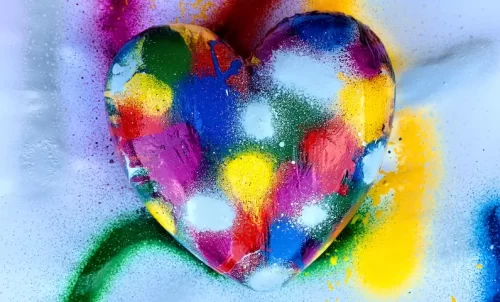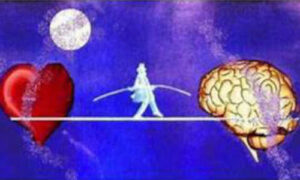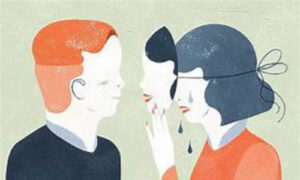Our emotions are closely related to the stories we tell ourselves about ourselves and which actually mirror the image we have of ourselves.
If our emotions are connected to our neurology, to our immune and endocrine systems, then it is natural that when we experience emotions a physical change occurs, which can also translate into a behavioural change.
Our inner world is a collection of narratives about our experiences and how we have reacted to them. Every experience we have and our reaction to it leaves a trace in our nervous system. Since we are still alive, it is obvious that our nervous system judges those reactions as appropriate and hence repeats them in all such situations, creating ever stronger traces. This is how a habit is created. We repeat behaviour that we are familiar with and thus turn them into habits.
Of course, what once and in particular conditions might have been appropriate does not necessarily remain so forever. Fortunately we can change what we think, we can change our feelings and our behaviour, we are not obliged to keep for ever beliefs once acquired, sometimes back in our childhood.
Here is an experiment.
Take a notebook or a sheet of paper and think of a story that concerns you and that you tell yourself, but that does not make you feel so good and ask yourself if there is another way you could tell this story, another version that could be true?
– For example, perhaps if you were taken to nursery and kindergarten from a very young age and believed then that your parents did not enjoy spending time with you, you probably felt unappreciated, undeserving, inappropriate, insufficient and other similar things.
If you have never experienced a story like this, think of an experience that made you suffer. A belief that remained for a long time, perhaps only at the unconscious level, and that made you suffer for a long time. But now, as adults, perhaps you can recognise that in reality your parents could not give up going to work, that they did not have the option of making a different choice, and that your qualities were not questioned at all and, least of all, their love for you.
As you recognise this truth, how do you judge yourself now and how do you feel? What can your choices and actions be now?
If those old beliefs and sufferings had never existed, what might your life have been like? Would you have made different choices? Would you have behaved differently?
– Think now about the unpleasant emotions that you still experience and ask yourself what distant experiences they remind you of, what they make you think about? What is the oldest memory you associate with those emotions?
Do you still think of yourself as you did then? Do you still want to continue to feel those emotions, after all, just because you are used to them?
I think it is time to accept the idea that those stories, those emotions and feelings can no longer define you.
Neuroscientists have discovered that our brain is ‘plastic’, that it is capable of creating new connections and new traces all the time, at any age, and that therefore we can create new and advantageous beliefs and a new life from new stories.
How could your life change if you only told positive stories about yourself?
To begin with, remember something that made you feel good. Remember as many details as possible. Remember what you had thought, what you had done and of course the result.
Remembering all this, do you feel that you could now do something that you dreamt of, but never allowed yourself to do before?
Try to remember more pleasant events and experiences in your life, make it a habit. Your life is in your hands, not in the hands of someone else, you are the only one who can choose what you want to think and feel and live.
Give yourself the chance to be what you want to be.



